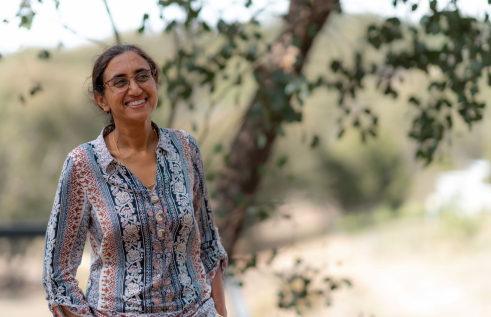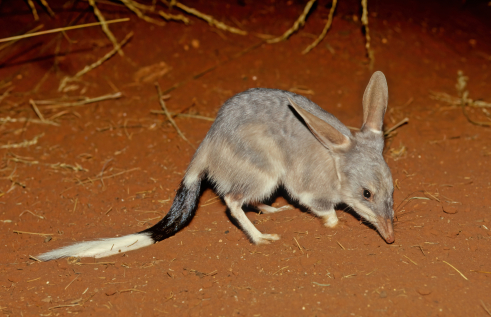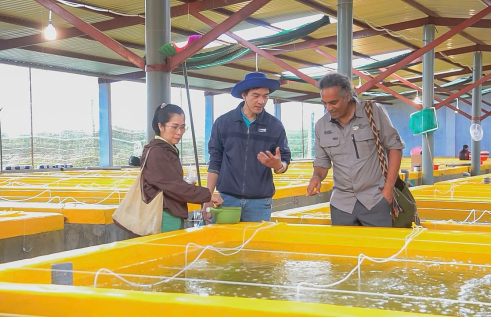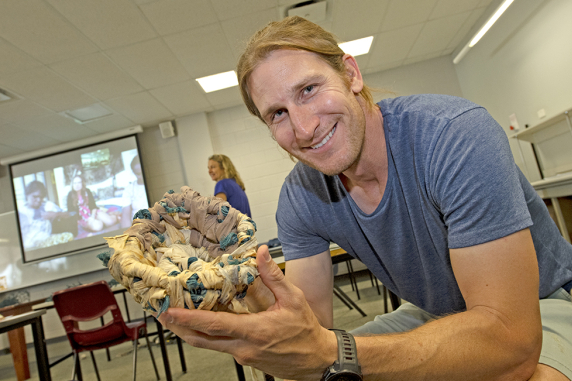news article
Marine debris turned into stunning woven baskets
Using discarded marine debris to hand-craft traditional Groote Eylandt woven baskets was one of the highlights for students taking part in a five-day Charles Darwin University course this week.
The online weaving workshop was run by CDU PhD alumni Aly de Groote and artists from Groote Eylandt’s Anindilyakwa Arts, where students were taught how to craft baskets using discarded fishing “ghost” nets, other ocean debris and bush dyed textiles.
It was part of a course titled “Natural Resources and Indigenous Livelihoods”, held this week with the aim of exploring the synergies between natural resource-based enterprise development and Indigenous livelihoods.
Research Institute for the Environment and Livelihoods (RIEL) Associate Professor Natasha Stacey organised the course and said the basket weaving exercise was one of many activities students took part in.
“Students used marine debris collected by rangers out at Groote Eylandt to weave the baskets,” she said.
“The intensive course provides an opportunity to introduce the students to diverse types of enterprise that Indigenous people are involved in.
“It’s not just about generating income and profit, but for all the other benefits associated with using natural resources and the environment to create an enterprise.
“The students have been exposed to a whole range of industries and have learnt about the various social, economic and environmental factors involved in developing and supporting Indigenous enterprise development in the Northern Territory.”
Other aspects of the course involved field trips to the Darwin Aquaculture Centre at Channel Island, where students learnt about an Indigenous oyster program, and a cultural tour with Pudakul Tours at Fogg Dam.
The two days of field trips were integrated with three days of lectures, guest speakers and group discussions.
Students also experienced a meeting with Larrakia rangers at Dripstone Cliffs and a visit to the Aboriginal Bush Traders shop in Darwin City.
Related Articles

Working with nature, not against it: How our economies can grow with the environment
Economic growth doesn’t have to come at a cost to the environment, and the ways in which this is possible will be on display at a global conference being held in Australia for the first time.
Read more about Working with nature, not against it: How our economies can grow with the environment
Stronger together: Bilby conservation efforts enhanced by Indigenous knowledge
One of the nation's most iconic and at-risk critters could benefit by combining Indigenous knowledge with western survey methods, according to a new study led by Charles Darwin University (CDU) in collaboration with the North Tanami Rangers and Traditional Owners from the community of Lajamanu.
Read more about Stronger together: Bilby conservation efforts enhanced by Indigenous knowledge
Changing the tide: New project aims to shift attitudes around fish welfare practices
Fish are often overlooked when the term “animal welfare” is used, but a new project is working to ensure happy fins are met with the same enthusiasm as cage-free eggs or grass-fed beef.
Read more about Changing the tide: New project aims to shift attitudes around fish welfare practices
